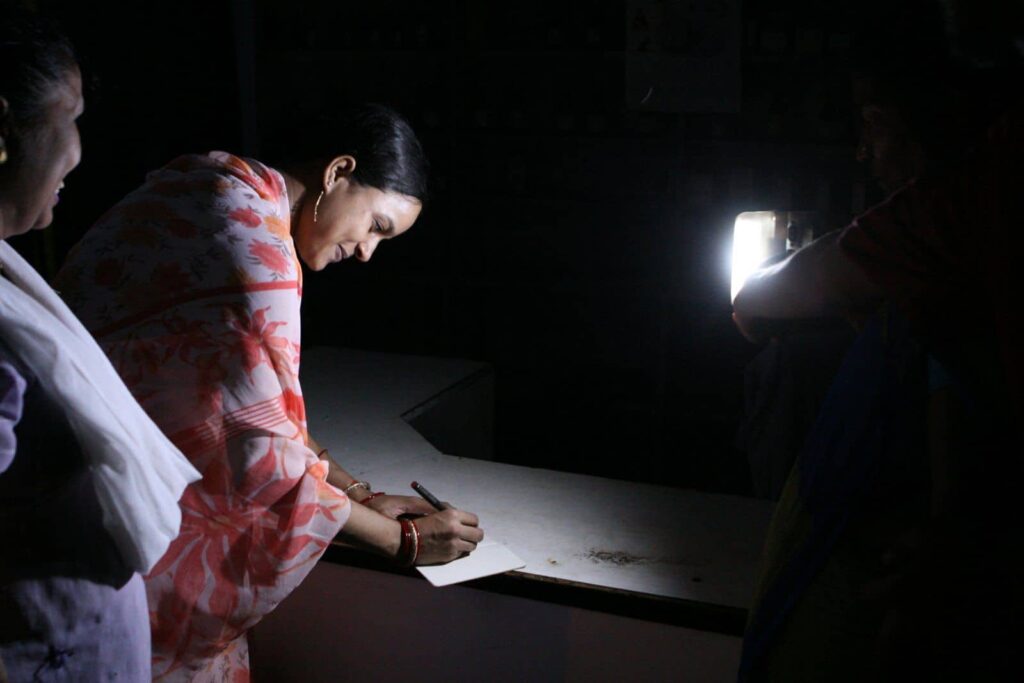An Introduction to Acumen’s Energy Impact Series
- Blog
- Renewable energy

We live in a world that is piloting driverless cars and commercial space flight yet, when the sun goes down across the globe, one in six people live more or less in darkness.
For these 1.2 billion mostly poor, mostly rural people, a lack of reliable, affordable energy has an overwhelmingly negative impact on their lives. It harms their prospects of working their way out of poverty, forces them into the paradox of spending up to one hundred times more than you or I on inferior energy products such as kerosene lamps, and exposes them to life-threatening indoor pollutants. Traditional, fossil fuel alternatives also emit high volumes of world’s top two contributors to climate warming: carbon dioxide and black carbon.
At Acumen we’ve been obsessed with what it means to live off grid since we started investing in energy in 2007. In the last decade, we’ve made more than 20 investments in companies providing solutions from biomass-powered mini-grids to pay-as-you-go solar home systems. We’ve learned that not only is there a significant—and growing—demand for off-grid energy but there is also a number of fantastic enterprises emerging to meet this need. These are exciting times as we’re reaching a tipping point that makes achieving energy access for all seem closer than ever.
***
But while we’ve long known that the social benefits of renewable energy are intuitive, there has been a surprising lack of quality evidence, even as the sector matures, about how, why, and to what degree access to energy is actually improving people’s lives. For example we’ve known little about families’ spending on energy and what shapes their decisions as well as the impact improved energy access has on household finances, health, opportunities for education, income generation, and movement up the energy ladder.
This lack of evidence has had some very real implications. For example, it has hindered our ability to understand the benefits of greater investment in the sector and led, in some instances, to skepticism concerning the social returns in comparison to more established forms of poverty alleviation such as investment in health, education, or clean water.
Moreover, achieving such an ambitious goal as energy for all – a target of the new Sustainable Development Goals – requires considerable collaboration across government, social and private sectors. A lack of evidence has hampered our cross-cutting discussions with governments, restricting policy dialogue and the ability to develop products and services that best meet the needs of off-grid populations.
***
To help fill this gap in knowledge, we are kicking off a series featuring new, breakthrough research that seeks to answer questions at the cutting edge of impact and off-grid energy. It is the culmination of years of work conceived and initiated by Kat Harrison, who previously worked at SolarAid and now leads Acumen’s work on the impact of our energy investments. Together these findings form the sector’s most extensive collection of academic research, complemented by Acumen’s own customer-based data on our energy portfolio using our Lean Data approach, which we will share this spring.
Through this series, we’ll share insights and hard evidence on the links between solar energy and poverty, health and education along with an assessment of the energy ladder as it exists today. This work has been executed in partnership with research powerhouses ETH Zurich, the University of California Berkeley, Stanford, United Nations Capital Development Fund, JPAL and more.
We hope you find this research as illuminating as we do and welcome your feedback to help guide our future work. This is a big step forward in unpacking the impact of off-grid energy, but it is by no means the end of what there is learn about the life-changing effects of access to energy.
Check out the first installment, Lighting the Way, and the second installment, A Cleaner Path.